Marin Sanitary Service’s “Top 10 Recycling Mistakes”
You can help keep our recycling streams clean and organized when you avoid making these recycling errors.
Are you confused about whether an item is recyclable or not? Are you following MSS’s most recent recycling guidelines? Below we detail some common issues we’ve found in our recycling streams.

Please put ONLY the plastics that we specify as “accepted” in your recycling cart.
Please put ONLY the plastics that we specify as “accepted” in your recycling cart. Currently we only accept plastic bottles, jugs, white or other colored (not transparent) tubs and #1 clamshell containers. ALL other plastics including plastic bags, plastic film wrap & deli containers belong in the gray garbage cart. Plastic bags and film can clog and break our machinery, which can be expensive to repair.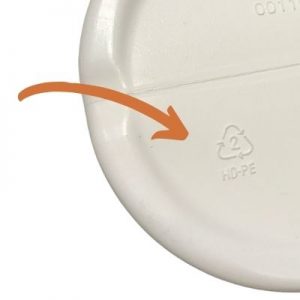
2. Just because an item has a recycling symbol doesn’t mean it is recyclable.
The recycling symbol helps us, the processor, understand what kind of plastic the material is made of. It does not necessarily mean that the material can be recycled, and it is best to use the resources on our website to determine whether a plastic item is recyclable.
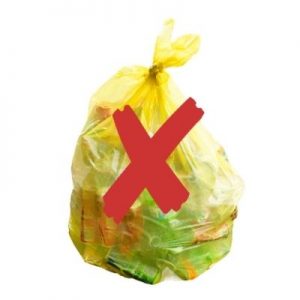
3. No bagging of recyclable containers (bottles, cans, etc.).
Not even in a paper bag. All items need to be loose in the curbside container.
All recyclable containers need to be loose so that the sorters at our facility can easily sort the containers by type. If materials are bagged, they can slip through our system and end up getting tossed in the garbage. As previously mentioned, the plastic bags can ruin our machinery too.
If you want to bag your containers before you toss them out, simply pour them into your recycling cart from the bag and toss the bag into the garbage (if plastic) or paper recycling (if paper).
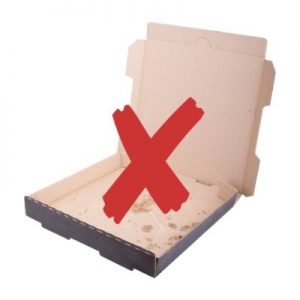
4. Pizza boxes go in the organics (green) cart.
Contrary to what many think, we cannot accept pizza boxes in the paper recycling cart. This is because the grease from the pizza contaminates not just the cardboard, but potentially more of the paper and cardboard it touches in the cart or at the recycling center. It also can contaminate the paper in the recycling process itself, preventing clean paper from getting properly recycled. Pizza boxes, however, can be composted and should be placed in the green cart.
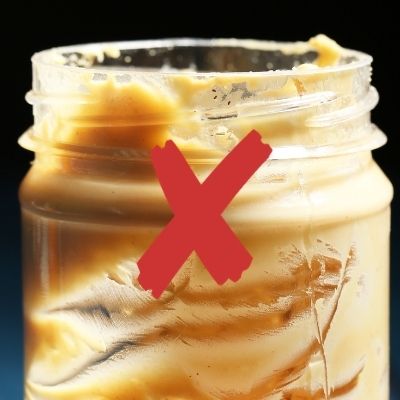
5. We cannot accept dirty containers in the recycling cart.
They must be free of food and wiped or rinsed clean.
Any containers with large amounts of food or liquid residue found on them can contaminate the rest of the items in that stream. For this reason, we ask that you rinse or wipe your containers clean of excess residue.
For instance, a peanut butter container cannot have small amounts of residue. It becomes a problem if there is leftover residue and makes the plastic less valuable or not recyclable in some cases.
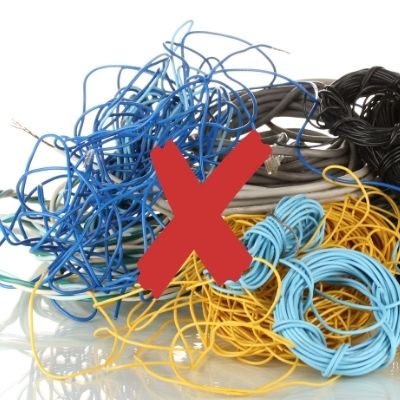
6. Hangers, wires and cords are not recyclable.
They belong in the garbage.
While these items may seem like they are recyclable, our systems are not designed to recover these items. Hangers, wires, and cords can jam and break the conveyor system, so it is best to put them in your trash cart.
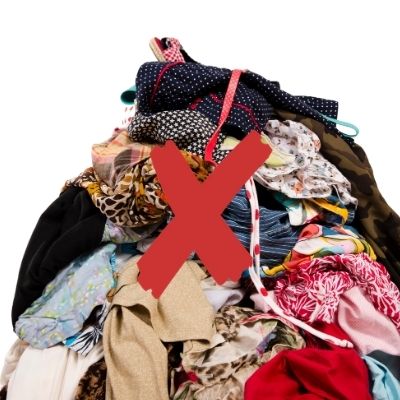
7. Clothing is not recyclable in your curbside cart.
Please donate clothing, or if damaged, place them in the garbage if you cannot repair or reuse it. Goodwill takes damaged clothing and textiles for the insulation or rag market. This is the best way to ensure your old clothing gets used more than once.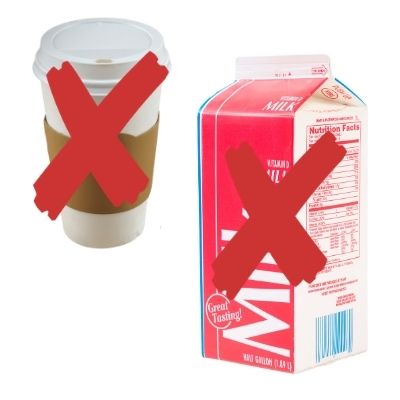
8. Non-recyclable paper must go in the garbage.
Only clean, plain paper items can go into the paper recycling. Plastic-lined items cannot and must be thrown in the trash. Examples of these items include:
- Coffee cups, soft drink cups
- Milk Cartons
- Plastic-lined plates
Magazines and other paper-items with a glossy coating can be recycled, as this is usually the result of the ink on the paper, not a plastic coating. If you’re unsure whether an item is “glossy” or lined with plastic, an easy way to test for this is to tear the item; if it tears it’s likely caused from ink rather than a plastic-lining (which will be much tougher to tear).
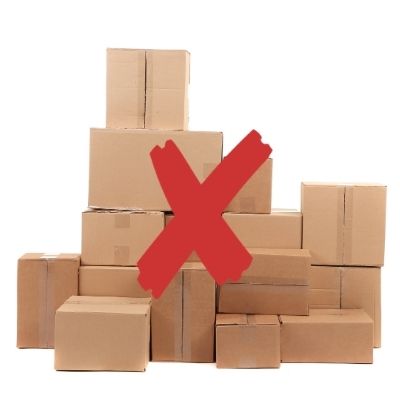
9. Improper cardboard recycling practices make it hard to recycle cardboard.
Breaking down and neatly stacking your excess cardboard ensures that the driver can easily collect and dump the cardboard by hand into the truck. It is not their job to break down your boxes, and can be considered a safety hazard for the driver when this isn’t done. It is also necessary to remove any packing materials (i.e. packing peanuts and styrofoam blocks) from the cardboard box, as these materials are not recyclable. If too much cardboard is stuffed into your recycling cart, it could prevent the material from dumping into the truck. If you have many cardboard boxes each week, you can always rent another recycling cart from us for a small fee. This is actually encouraged during the rainy season, as wet cardboard loses all value in the recycling market and often gets tossed. Multifamily residents in apartments and HOA’s must make sure that cardboard is broken down and placed inside the collection receptacles.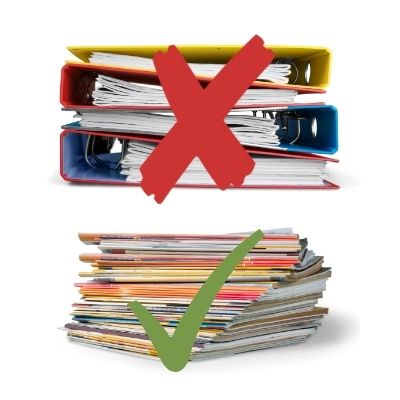
10. Composite items usually belong in the trash.
Composite items are items with an even mix of paper, plastic and/or metal. Unless you can separate the materials that make up the item, they generally go into the trash. The exception is if an item is made with 90% of one material (such as an envelope with a clear plastic window).How Do You Know Where Something Goes?
Don’t forget to check out our app, “Where Does it go, Joe?” on the Google Play Store and Apple’s App store (also available on our website).
